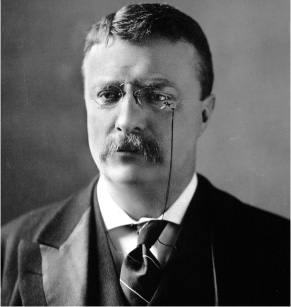The Home Front: 1861 to 1865Children in Wartime |
How were two young boys who later became presidents affected by the war? |
Born in Manhattan on October 27, 1858, Theodore Roosevelt came from an old Dutch family on his father’s side and a thoroughly Southern family on his mother’s (his maternal grandfather had fought in the Texan War for Independence in 1836). Though he lived a life of privilege and pleasure, young Theodore Roosevelt was deeply affected by the war, not least because his father was away from home—working on behalf of the soldiers rather than serving in the Union Army—for a total of two years. The letters from Theodore’s mother to his father indicate an increasing bitterness over his absence, as well as the painful fact that theirs was a household divided between the North and the South. Young Roosevelt had his first attack of asthma—the illness that would, in some ways, define his life—at the age of three. Historians who accept psychological explanations tend to concur that Roosevelt’s adult interest in war—he served in the Spanish-American War of 1898—stemmed both from his childhood memories of the Union soldiers and from the fact that his father did not serve an active role (according to the theory of compensation, Theodore Roosevelt attempted to do what his father had not). Equally affected was the man who served two terms as president in the second decade of the twentieth century.

Though he was too young to fight in the war, President Theodore Roosevelt was profoundly affected by the conflict between North and South as a boy.
